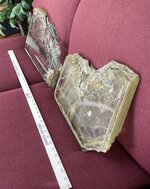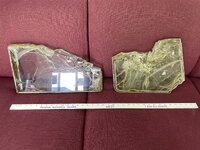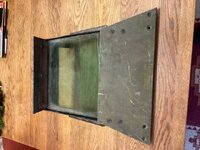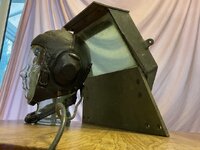Larrythepilot
Airman
Our museum has 2 pieces of multi-layered "bulletproof" glass. Pictures attached. We would very much like to know what WWII aircraft (probably German) they came from. Our current president thinks perhaps they came from the canopy of a fighter, like the Bf-109. However, this glass is really heavy. It is nearly 2 inches thick. I can't believe such heavy glass would be in a sliding canopy. The darn thing would never move. Do any of you have any ideas about this? Thank you.





